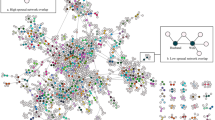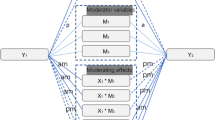Abstract
Numerous studies have acknowledged the link between marital satisfaction and depressive symptoms, yet a comprehensive family-centric perspective remains unexplored. This investigation delves into the influences of marital satisfaction on depressive symptoms among elderly pairs, considering both individual and cross-spousal impacts, while highlighting the intermediary role of the parent-child relationship. Employing data from 2909 Chinese pairs aged 60 and above in the China Health and Retirement Longitudinal Study, we utilized the Actor-Partner-Interdependence-Model (APIM). This model examined emotional ties within families and their associations with depressive indicators on individual and spousal levels. Our APIM analysis revealed a positive correlation between depressive symptoms in husbands and wives and their respective levels of marital satisfaction. Notably, wives’ marital satisfaction significantly predicted depressive symptoms in husbands. The parent-child bond emerged as a mediator, linking marital satisfaction to depressive symptoms for both genders. Specifically, wives’ perception of the parent-child relationship mediated the link between their marital satisfaction and husbands’ depressive symptoms. Depressive symptoms were linked to personal marital satisfaction, and the parent-child relationship served as a mediator for both partners. Importantly, the marital satisfaction of wives and the parent-child relationship significantly impacted the depressive symptoms of both spouses, particularly predicting depressive tendencies among husbands. Therefore, interventions aimed at the mental well-being of aging spouses should adopt a comprehensive family-centric approach, with a specific focus on aging females.




Similar content being viewed by others
Data availability
The CHARLS 2018 dataset used in this study is publicly available (http://charls.pku.edu.cn).
References
Bar-Tur, L., Ifrah, K., Moore, D., & Katzman, B. (2019). Exchange of emotional support between adult children and their parents and the children’s well-being. Journal of Child and Family Studies, 28(5), 1250–1262. https://doi.org/10.1007/s10826-019-01355-2.
Barlow, J., Anja, V., Juffer, F., & Bakermans-Kranenburg, M. (2014). Sensitive parenting is the foundation for secure attachment relationships and positive social-emotional development of children. Journal of Children’s Services, 9(2), 165–176. https://doi.org/10.1108/JCS-12-2013-0038.
Bastida-González, R., Valdez-Medina, J., Valor-Segura, I., Fuentes, N., & Rivera-Aragón, S. (2017). Marital satisfaction and marital status as a protective factor of depression and anxiety. Revista Argentina De Clinica Psicologica, 26(1), 95–102. https://doi.org/10.24205/03276716.2017.1008.
Bate, J., Pham, P., & Borelli, J. (2021). Be my safe haven: Parent-child relationships and emotional health during COVID-19. Journal of Pediatric Psychology, 46(6), 624–634. https://doi.org/10.1093/jpepsy/jsab046.
Cao, H. J., Zhou, N., Fang, X. Y., & Fine, M. (2017). Marital well-being and depression in Chinese marriage: going beyond satisfaction and ruling out critical confounders. J Fam Psychol, 31(6), 775–84. https://doi.org.10.1037/fam0000312.
Chang, S. (2016). Kirogi women’s psychological well-being: The relative contributions of marital quality, mother-child relationship quality, and youths educational adjustment. Journal of Family Issues, 39(1), 209–229. https://doi.org/10.1177/0192513x16632265.
Chen, Y., Ge, E., Zhou, L., Du, J., & Mace, R. (2023). Sex inequality driven by dispersal. Current Biology, 33(3), 464–473. https://doi.org/10.1016/j.cub.2022.12.027.
Cheung, C., Low, A., & Ning, X. (2019). Marital liberalization in relation to life satisfaction. Applied Research in Quality of Life, 14(2), 291–307. https://doi.org/10.1007/s11482-018-9593-4.
Dong, S., Dong, Q., & Chen, H. (2021). Mothers’ parenting stress, depression, marital conflict, and marital satisfaction: The moderating effect of fathers’ empathy tendency. Journal of Affective Disorders, 299, 682–690. https://doi.org/10.1016/j.jad.2021.12.079.
Du, W., Luo, M., & Zhou, Z. (2022b). A study on the relationship between marital socioeconomic status, marital satisfaction, and depression: Analysis based on actor–Partner Interdependence Model (APIM). Applied Research in Quality of Life, 17(3), 1477–1499. https://doi.org/10.1007/s11482-021-09975-x.
Ebrey, P. B. (2002). Women and the family in Chinese history. London and New York.
Fei, X. (1998). Rural China, fertility system. Peking University.
Galovan, A. M., Holmes, E. K., Schramm, D. G., & Lee, T. R. (2014). Father involvement, father–child relationship quality, and satisfaction with family work: Actor and partner influences on marital quality. Journal of Family Issues, 35(13), 1846–1867. https://doi.org/10.1177/0192513X13479948.
Goldfarb, M. R., Trudel, G., Boyer, R., & Préville, M. (2007). Marital relationship and psychological distress: Its correlates and treatments. Sexual & Relationship Therapy, 22(1), 109–126. https://doi.org/10.1080/14681990600861040.
Guo, X. (2018). Social participation and depressive symptoms among Chinese older adults: A study on rural-urban differences. Journal of Affective Disorders, 239, 124–130. https://doi.org/10.1016/j.jad.2018.06.036.
Irani, E., Park, S., & Hickman, R. (2021). Negative marital interaction, purpose in life, and depressive symptoms among middle-aged and older couples: Evidence from the health and retirement study. Aging & Mental Health, 26(4), 860–869. https://doi.org/10.1080/13607863.2021.1904831.
Jenkins, A., Fredman, S. J., Le, Y. Y., Sun, X. R., Brick, T. R., Skinner, O. D., & Mchale, S. M. (2020). Prospective associations between depressive symptoms and marital satisfaction in black couples. Journal of Family Psychology, 34(1), 12–23. https://doi.org/10.1037/fam0000573.
Jiang, C. (2021). Unpacking the associations between traumatic events and depression among Chinese elderly: Two dimensions of aging attitudes as mediators and moderators. Int J Ment Health Promot, 23(2), 231–242. https://doi.org/10.32604/IJMHP.2021.015253.
Jiang, C., Hu, C., & Li, D. (2023). Linking chronic diseases, cognitive impairment and depressive symptoms in Chinese older adults: A three-wave population-based longitudinal study. Journal of Affective Disorders, 324, 496–501. https://doi.org/10.1016/j.jad.2022.12.150.
Kenny, D., & Cook, W. (1999). Partner effects in relationship research: Conceptual issues, analytic difficulties, and illustrations. Personal Relationships, 6(4). https://doi.org/10.1111/j.1475-6811.1999.tb00202.x.
Lamb, M. (2000). The history of Research on Father involvement. Marriage & Family Review, 29(2), 23–42. https://doi.org/10.1300/j002v29n02_03.
Leigh, J., John, O., Fischer, F., Rabiee, N., Mirzaei, A. M., & Lim, S. S. (2020). Global burden of 369 diseases and injuries in 204 countries and territories 1990–2019: A systematic analysis for the global burden of Disease Study 2019. The Lancet, 396(10258), 1223–1249. https://doi.org/10.1016/S0140-6736(20)30925-9.
Li, T., & Fung, H. H. (2014). How avoidant attachment influences subjective well-being: An investigation about theageandgender differences. Aging & Mental Health, 18(1), 4–10. https://doi.org/10.1080/13607863.2013.775639.
Liang, Y., Yang, M., Zhao, G., Mao, Y., Zhang, L., & Hu, Z. (2018). Relationship between mortality in people with mental disorders and suicide mortality in China during 2000 to 2014. Medicine, 97(49), e13359. https://doi.org/10.1097/MD.0000000000013359.
Maroufizadeh, S., Hosseini, M., Foroushani, A. R., Omani-Samani, R., & Amini, P. (2018). The relationship between marital satisfaction and depression in infertile couples: an actor–partner interdependence model approach. BMC Psychiatry, 18. https://doi.org/10.1186/s12888-018-1893-6.
Marzo, R., Bhattacharya, S., Mohamad, M., Noraidiazhar, N., Salim, A., & Subramanian, T. (2022). Evaluating the role of residence affecting the mental health among elderly populations in Malaysia: A cross-sectional study. Journal of Education and Health Promotion, 11(75). https://doi.org/10.4103/jehp.jehp_1476_20.
Mi, T., Zhou, G., Li, X., Qiao, S., Yang, X., & Shen, Z. (2023). The association between HIV disclosure to family members and quality of life among people living with HIV/AIDS: The indirect effects through social support. Current Psychology, 42(7), 5755–5764. https://doi.org/10.1007/s12144-021-01927-w.
Niu, Z., Zhai, M., Dong, Y., Wen, W., Xue, L., & Aosiman, M. (2022). Association between air quality satisfaction, family relationships, and depression symptoms among middle-aged and elderly Chinese people: The mediation role of perceived health status. Bmc Public Health, 22(1). https://doi.org/10.1186/s12889-022-14711-7.
Peltz, J., Rogge, R., & Sturge-Apple, M. (2018). Transactions within the family: Coparenting mediates associations between parents’ relationship satisfaction and the parent–child relationship. Journal of Family Psychology, 32(5), 553–564. https://doi.org/10.1037/fam0000413.
Proulx, C. M., Buehler, C., & Helms, H. (2009). Moderators of the link between marital hostility and change in spouses’ depressive symptoms. Journal of Family Psychology, 23(4), 540–550. https://doi.org/10.1037/a0015448.
Ren, X., & Lu, C. (2021). Effect of children’s support on depression among older adults living alone or with a spouse: A comparative analysis between urban and rural areas of China. Sustainability, 13(11). https://doi.org/10.3390/su13116315.
Shi, Y., & Whisman, M. A. (2023). Marital satisfaction as a potential moderator of the association between stress and depression. Journal of Affective Disorders, 327, 155–158. https://doi.org/10.1016/j.jad.2023.01.093.
Skinner, O., Sun, X., & Mchale, S. (2021). Links between marital and parent-child relationship in African American families: A dyadic approach. Journal of Family Psychology, 35(8), 1086–1096. https://doi.org/10.1037/fam0000844.
Steele, E., & Mckinney, C. (2020). Relationships among emerging adult psychological problems, maltreatment, and parental psychopathology: Moderation by parent–child relationship quality. Family Process, 59(1), 257–272. https://doi.org/10.1111/famp.12407.
The People’s Republic of China (2019). Law of the People’s Republic of China on the Protection of the Rights and Interests of the Elderly. http://www.npc.gov.cn/zgrdw/npc/xinwen/2019-01/07/content_2070262.htm. Accessed December 13, 2023.
Wang, F., & Zheng, H. (2021b). Do public pensions improve mental wellbeing? Evidence from the new rural society pension insurance program. International Journal of Environmental Research and Public Health, 18(5), 2391. https://doi.org/10.3390/ijerph18052391.
Wang, Q. R., Wang, D. H., Li, C. H., & Miller, R. B. (2013). Marital satisfaction and depressive symptoms among Chinese older couples. Aging & Mental Health, 18(1), 11–18. https://doi.org/10.1080/13607863.2013.805730.
Wang, Z. J., Yang, H. M., Zheng, P. P., Liu, B., Guo, Z. Y., Geng, S., & Hong, S. D. (2020). Life negative events and depressive symptoms: The China Longitudinal Ageing Social Survey. BMC Public Health, 20(1). https://doi.org/10.1186/s12889-020-09119-0.
Xu, X., Zhou, Y., Su, D., Dang, Y., & Zhang, X. (2023). Does education influence life-course depression in middle-aged and elderly in China? Evidence from the China Health and Retirement Longitudinal Study (CHARLS). International Journal of Environmental Research and Public Health, 20(2), 1256. https://doi.org/10.3390/ijerph20021256.
Yahirun, J. J., Connor, M., & Krysia, N. (2020). Depression in later life: The role of adult children’s college education for older parents’ mental health in the United States. The Journals of Gerontology Series B-Psychological Sciences and Social Sciences, 75(2), 389–402. https://doi.org/10.1093/geronb/gby135.
Yang, Y. (2017). Silver economy and embedded aging service. Tsing Hua University.
Yisma, E., Eshetu, N., Ly, S., & Dessalegn, B. (2017). Prevalence and severity of menopause symptoms among perimenopausal and postmenopausal women aged 30–49 years in Gulele sub-city of Addis Ababa, Ethiopia. BMC Women’s Health, 17(1), 124. https://doi.org/10.1186/s12905-017-0484-x.
Yuliana, S., Yu, E., Rias, Y., Atikah, N., Chang, H., & Tsai, H. (2023). Associations among disability, depression, anxiety, stress, and quality of life between stroke survivors and their family caregivers: An actor-Partner Interdependence Model. Journal of Advanced Nursing, 79(1), 135–148. https://doi.org/10.1111/jan.15465.
Zhao, X., Zhang, Q., Ji, Y., Liu, H., & Lou, V. (2022). Influence of spousal caregiving and living arrangement on depression among husband caregivers in rural China. Aging & Mental Health, 27(7), 1266–1273. https://doi.org/10.1080/13607863.2022.2089630.
Zhao, X. Y., Zhang, Q., Xu, H. H., Li, X. X., Lou, V., & Liu, H. Y. (2023). Unmet needs and depression among spousal caregivers: The mediating role of marital satisfaction. Aging & Mental Health, 27(10), 2027–2033. https://doi.org/10.1080/13607863.2023.2194851.
Zheng, R. R., Yu, M. Y., Huang, L., Wang, F., Gao, B. Z., Fu, D. D., Zhu, J. H., & Liu, G. L. (2022). Effect of intergenerational exchange patterns and intergenerational relationship quality on depressive symptoms in the elderly: An empirical study on CHARLS data. Frontiers in Public Health, 10, https://doi.org/10.3389/fpubh.2022.1009781.
Acknowledgements
The CHARLS data collection funded by US National Institute in Aging, World Bank, and the National Social Science Foundation of China are gratefully acknowledged. Additionally, we extend our appreciation for the support received from the National Natural Science Foundation of China (Grants No. 71764014 and 71764035).
Author information
Authors and Affiliations
Corresponding author
Ethics declarations
Ethics approval and consent to participate
CHARLS data was reviewed and approved by the Ethics Committee of Peking University in 2008 (IRB00001052-11,015), all participants have signed the informed consent.
Participant consent statement
All participants expressed informed consent to participate in the study.
Disclosure statement
The authors declare no potential conflicts of interest with respect to the research, authorship, and publication of this article.
Additional information
Publisher’s Note
Springer Nature remains neutral with regard to jurisdictional claims in published maps and institutional affiliations.
Rights and permissions
Springer Nature or its licensor (e.g. a society or other partner) holds exclusive rights to this article under a publishing agreement with the author(s) or other rightsholder(s); author self-archiving of the accepted manuscript version of this article is solely governed by the terms of such publishing agreement and applicable law.
About this article
Cite this article
Zhang, X., Dai, J., Chen, Y. et al. A study on the association between family emotional bonds and depressive symptoms among Chinese older couples: evidence from the China health and retirement longitudinal study. Curr Psychol 43, 20324–20335 (2024). https://doi.org/10.1007/s12144-024-05807-x
Accepted:
Published:
Issue Date:
DOI: https://doi.org/10.1007/s12144-024-05807-x




